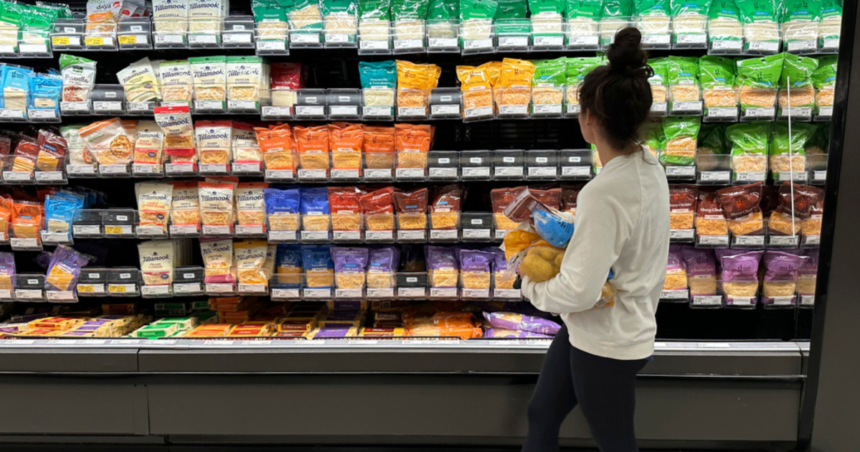There are a couple of key numbers on the economy coming out this week…
Today’s Producer Price Index indicates that inflation on the wholesale prices manufacturers receive for their products slowed down in July.
Analysts anticipate a similar slowing in tomorrow’s Consumer Price Index, which measures the prices consumers pay for retail goods.
Despite the slowdown in inflation, some Americans are still feeling the financial strain.
“The rent is crazy. Food is crazy. I just spent $250 on about a week and a half worth of groceries,” Chereese Liddell said.
RELATED STORY | Consumer confidence in US falls in June as Americans worry about near-term prospects
Although shoppers are feeling the pinch, analysts predict that Wednesday’s new Consumer Price Index numbers will show a decrease in inflation in July compared to June. Year-over-year, inflation is expected to be 3.2% — the lowest since April 2021, but some consumers are disheartened.
“I don’t know if prices will ever go back to what they were before,” Tomira White said.
The prices of some essentials have risen significantly over the past two years, leaving many Americans feeling financially strained.
Food prices have increased by just over 8% in the last two years. Electricity costs are up by nearly 10% since June 2022. Rent and housing costs have risen by 13.3%. The cost of maintaining a vehicle has increased by almost 20% compared to two years ago.
RELATED STORY | Frito-Lay suggests lower prices could win back inflation-weary consumers
While wages have gone up, people in the lowest economic brackets find that housing and groceries consume a larger portion of their total budget.
“When the average American is struggling to afford rent, groceries, and gas — the economy is more than just the stock market. The economy encompasses everyday Americans like you and me,” said Thomas Stockwell, an assistant professor of economics at the University of Tampa.





